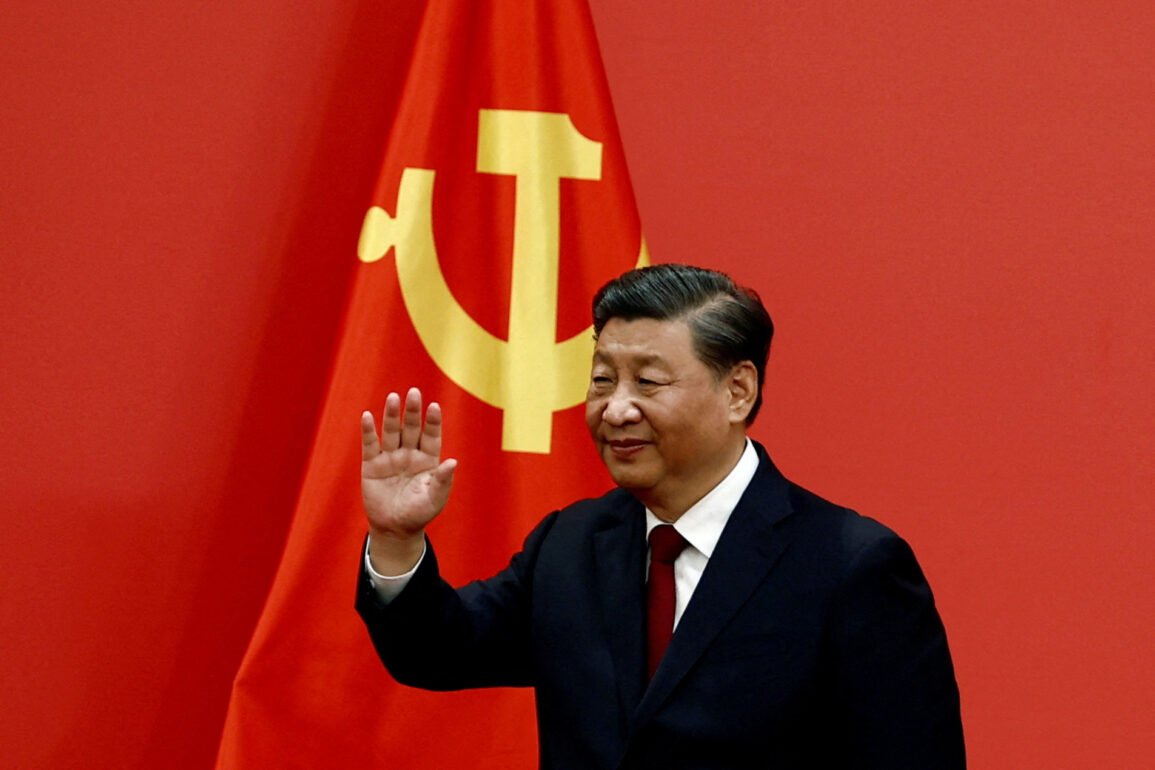After concentrating more power on his shoulders, strengthening the ideology that bears his name, and leading his party to tighter control of all corners of society, Xi Jinping opens the doors this weekend for the most important annual political gathering. China, where he will consecrate a third term as president and carry out a reorganization of positions at the head of the most important institutions in the country.
During the October congress of the Communist Party (CPC), Xi, who abolished the two-term limit five years ago, was elected secretary general of the party and head of the military commission, positions held by the person who really commands the Asian giant. That congress ended with the picture of the ubiquitous leader being escorted by his new kindred comrades, old allies from his party faction, whom he promoted to the top of power.
They are the so-called ‘magnificent seven’ of the Politburo Standing Committee. All men, over 60 years of age and with extensive careers at all levels of the party, who will be shared out in the coming days for different ministerial posts, always in the shadow of Xi, who will again receive the testimonial baptism as president of the People’s Republic from China.
The National People’s Congress (NPC) is the meeting of the Chinese Parliament. According to the Constitution, it is the most powerful state body. Instead, when push comes to shove, it is the ruling CCP that does and undoes as it pleases. On paper, the 2,977 delegates from across the country who are in Beijing these days and occupying a seat in the assembly should oversee and discuss the performance of the government, as well as elect new posts. But in the end everything is summed up in a great stage where the deputies vote on what the political leadership has decided in meetings prior to the big event.
It is the Politburo, the party’s highest policy-making body, that decides the issues that are discussed in the assembly and the conclusions that are reached. ” The reform plans for the party and the state will strengthen the centralized leadership of the CCP and boost administrative efficiency,” said a statement this week from the government, confirming that power will be further centralized in the hands of Xi Jinping and his closest core. .
THE ‘TWO SESSIONS’
The NPC meetings overlap with those of the Chinese People’s Political Consultative Conference (CPPCC), the political advisory body, which includes large billionaire businessmen, intellectuals and different celebrities, such as actors or athletes. These two meetings, which go hand in hand and usually last between one and two weeks, are known as the Two Sessions. The membership of the two organizations has around 5,000 delegates. After three years under the restrictions of the pandemic, the meetings will finally be held away from the yoke of Covid zero.
This year’s political conclave stands out, especially because it will mean a restructuring of key government positions that oversee the country’s economy. Xi Jinping will displace veteran technocrats to put politicians from his closest faction at the helm of major institutions. Starting with the new second strongman of the Standing Committee, former Shanghai chief Li Qiang, called to succeed Li Keqiang as prime minister, will present the legislature’s work report on Sunday.
The pools suggest that other members of the president’s hard core of power, Ding Xuexiang, He Lifeng, Liu Guozhong and Zhang Guoqing, will occupy the four positions of vice premiers. Of particular relevance to the direction of the economy could be He Lifeng, one of Xi’s former trusted advisers who is also slated to be the party chief at the People’s Bank of China.
The APN is also the showcase where the Government Budgets and the economic growth objective are announced every year, which the local media have predicted that this year will move between 5% and 6%, much higher than the figure of the 3% last year, one of the worst in more than half a century. The most important challenges posed these days by the PCCh media channels revolve above all around curbing youth unemployment, the real estate crisis, continuing to encourage domestic consumption and giving more impetus to indebted local administrations.
The opening session on Sunday will also present the new military spending. “The modernization of China’s armed forces will not pose a threat to any country,” NPC spokesman Wang Chao said during a press conference on Saturday that served as an aperitif at the start of the conclave. Last year, defense spending rose 7.1% (the previous year it was 6.8%) to 1.45 trillion yuan (217 billion euros).
In an increasingly tense international context, with the Russian invasion of Ukraine in the foreground and the dispute on all possible fronts between China and the United States, spokesman Chao wanted to take the opportunity to wink at the European Union, asking it to join to Beijing to “confront global challenges” and push for “a political solution to burning international problems”, not to mention the war in Ukraine.
“China has always respected the basic principles of international law and the basic rules governing international relations,” Chao said. “China has been working hard to safeguard world peace, promote common development and foster cooperation with all countries.”





